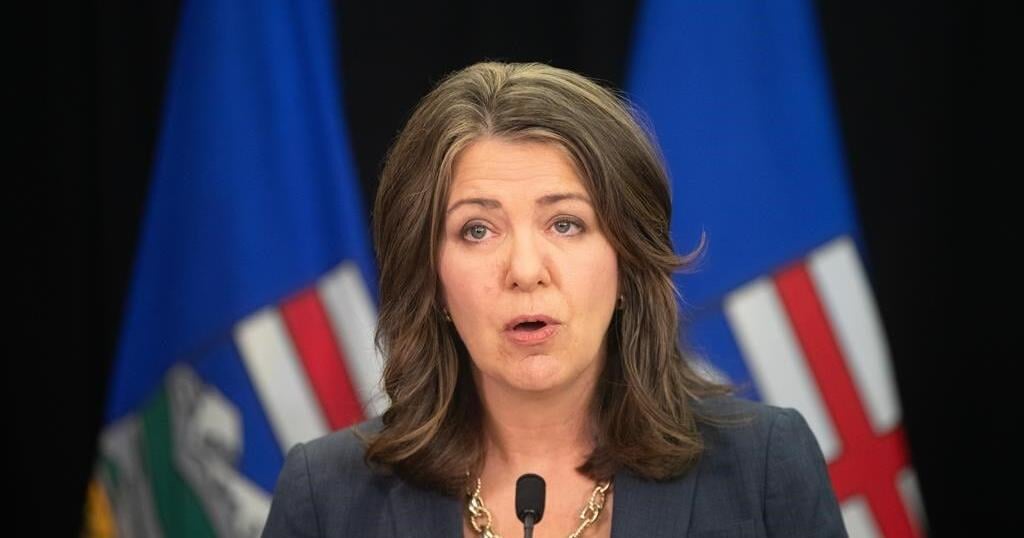EDMONTON – Alberta’s doctors and nurses say they have questions and concerns about the government’s plan to off-load underperforming hospitals to third-party operators.
Dr. Paul Parks, president of the Alberta Medical Association, said Premier Danielle Smith’s government needs to share its data and show why third-party providers might be better suited to run some facilities than Alberta Health Services.
“The profession has very serious concerns about opening the floodgates to any provider out there, without having a really clear plan,” Parks said in an interview Wednesday.
Earlier this month, Smith told a United Conservative Party town hall in Drayton Valley, Alta., that she will look to transfer authority in some cases in an effort to create competition and “fear” among providers.
The policy shift would be part of a bigger plan first announced last year by Smith to dismantle Alberta Health Services, or AHS, the provincial authority tasked with delivering front-line care.
Parks said multiple providers vying for hospital authority will ultimately pit the government against itself in a single-payer system and worsen efforts to recruit and retain key staff.
He said competition between hospitals and private chartered surgical facilities already means hospitals are hurting for staff to deal with urgent care.
Parks added that the Edmonton health zone has, under successive governments, underperformed the Calgary zone in part because having two hospital authorities — AHS and faith-based Covenant Health — doesn’t lend itself well to co-ordination.
Parks called on the government to show existing data on hospital care metrics like closures and patient access, and tell the public how the province will be transparent in cutting deals with new hospital operators.
Danielle Larivee, a vice-president at the United Nurses of Alberta, said nurses are “very alarmed” by hospital transfers she said could negatively affect care and drive critical health-care workers from the province.
Like Parks, Larivee said the worry is the restructuring will lead to more bureaucracy and less co-ordination across the system.
“We’re not seeing any evidence at all to support the idea that this is about improving access to care, about improving services or even about saving money,” said Larivee in an interview.
“If we’re not saving money and not making care better, why are we doing it?”
She said the element of fear raised by Smith, along with the uncertainty of not knowing how acute care will be organized or who one’s employer might be, “makes it a very difficult place to continue to work.”
The advocacy group Friends of Medicare said politics, not health care, is driving Smith’s agenda.
“Using Alberta Health Services as a scapegoat for our government’s own failings in health care is an age-old strategy here in Alberta, but Danielle Smith has turned it into a political obsession designed to rally her base against our public health care,” said Friends of Medicare executive director Chris Gallaway in a statement.
Health Minister Adriana LaGrange’s office did not respond for a second day to specific questions, including how hospital underperformance might be measured and how transferring authority might address staffing shortages.
In a statement Tuesday, LaGrange’s press secretary Andrea Smith said AHS and Covenant Health will both still play key roles.
“Ensuring we have the right partner delivering these services is critical and we will continue to evaluate this on an ongoing basis,” Smith wrote.
This report by The Canadian Press was first published Aug. 28, 2024.
